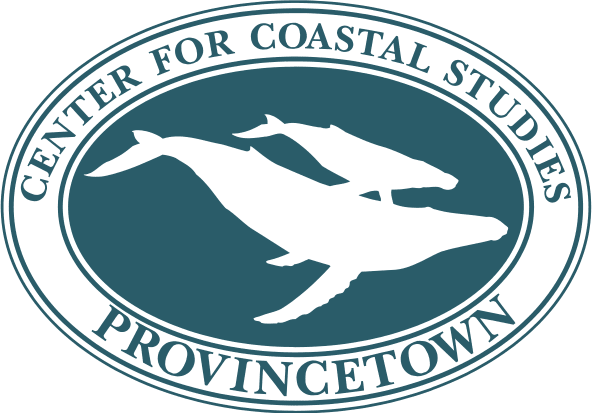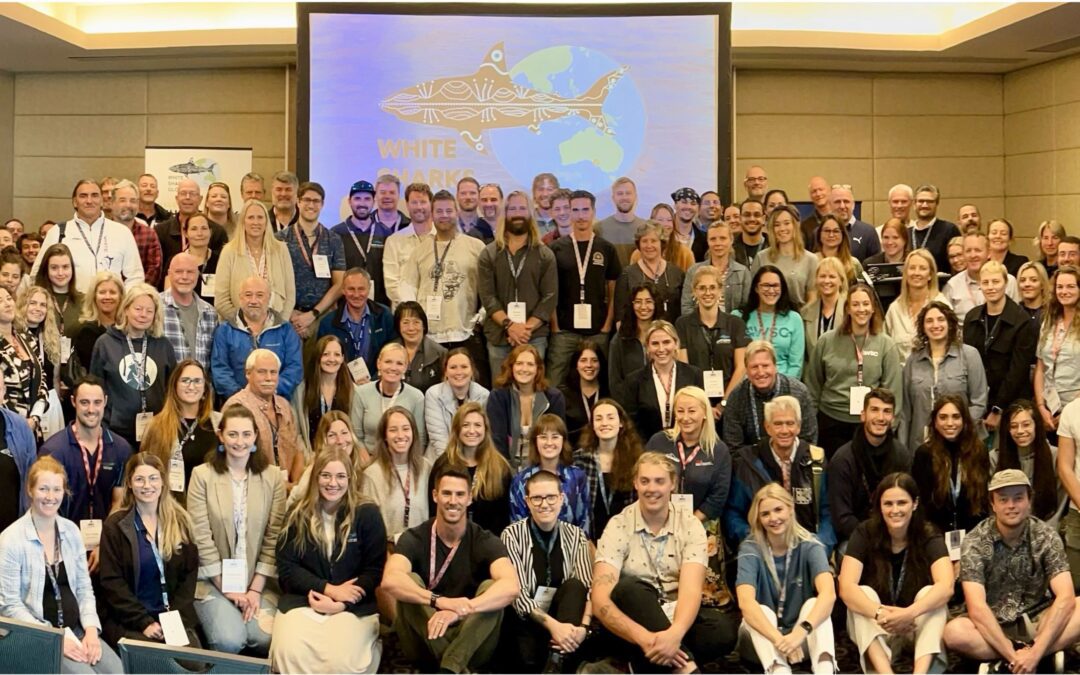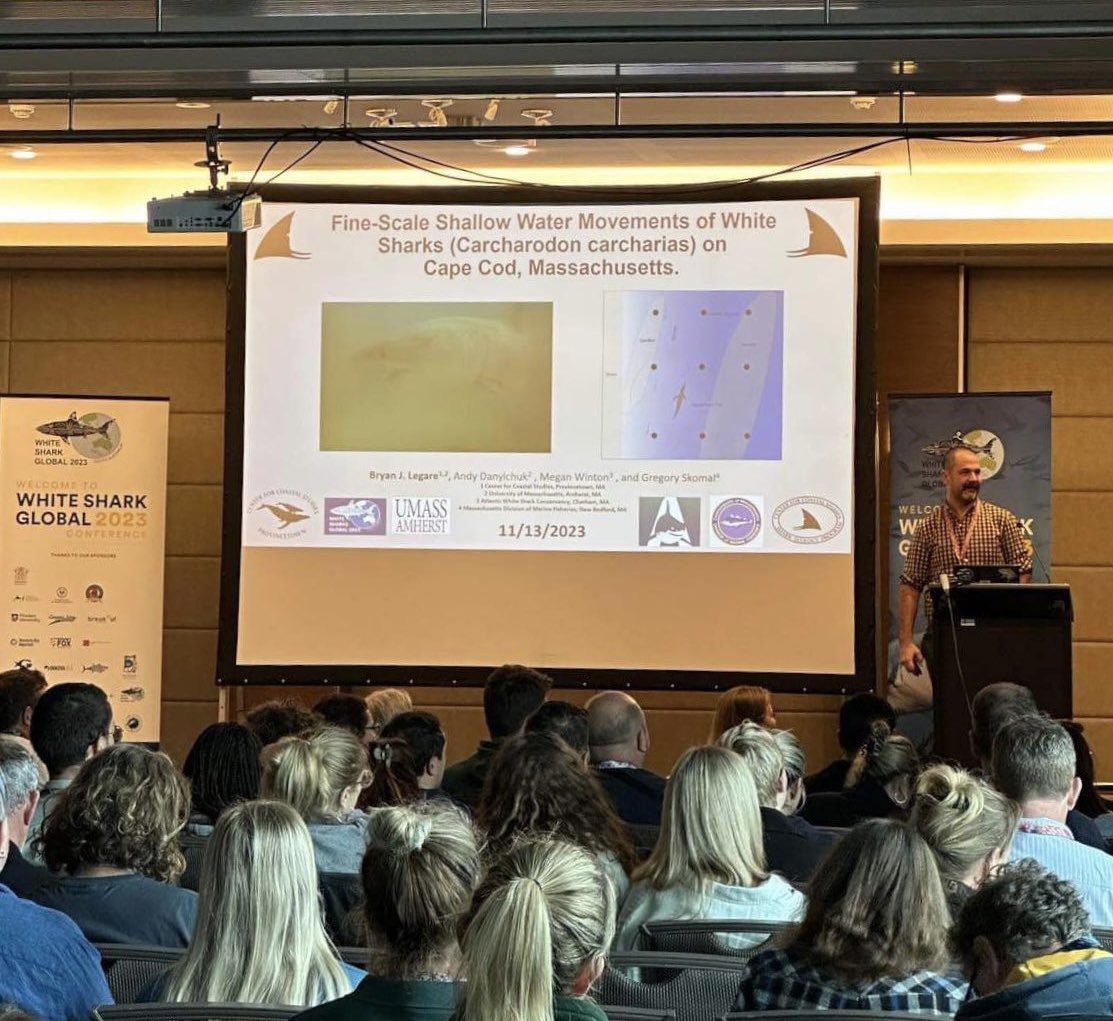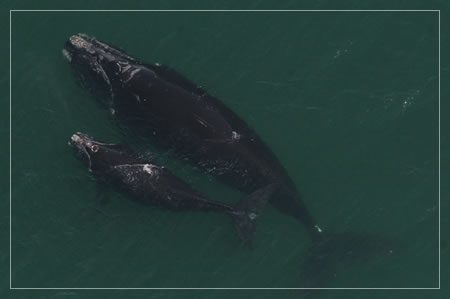Q: In November you attended an international shark conference in Australia. That’s a long way to go, so it must be an important conference. And certainly, Australia is home to a large population of sharks. Can you tell us about the conference?
A: The conference is called White Sharks Global. It was held in Port Lincoln, which is on the coast in South Australia, not far from Adelaide. The conference attracts scientists from around the world. It’s typically held every ten years, but due to Covid, this was the first conference in 13 years. There were 164 white shark scientists from nine countries, so I’d say it’s a pretty big conference, especially for a single species of fish that nobody eats!
Q: You gave a presentation about research you’ve been involved with, can you tell us about that?
A: I gave a talk about a research paper called “Fine Scale Movements of Great White Sharks on Cape Cod.” The paper was co-authored by me, Andy Danylchuk from UMass Amherst, Megan Winton of the Atlantic White Shark Conservancy in Chatham, and Greg Skomal of the Massachusetts Division of Marine Fisheries.
For the paper, we studied the seasonal aggregations of white sharks (Carcharodon carcharias) on Cape Cod. White sharks and humans have overlapping habitats, and that’s led to an increase of white shark-human interactions. So a better understanding of the movements and behavior of white sharks in shallow water is necessary to inform public safety.
Q: How would you summarize the study?
A: We tracked tagged white sharks between 2019 and 2022 using a dense array of acoustic receivers at five beaches here on the Cape. We were able to follow more than 80 white sharks moving through depths ranging from one to twelve meters for periods up to four-and-a-half hours. The sharks were present during 40 percent of the study period and showed distinct affinity for waters near gray seal (Halichoerus grypus) haulouts. In general, individual movement patterns in these shallow water habitats were associated with bathymetry, changes in oceanographic conditions, and the occurrence of high-energy weather systems. The study shed a lot of light on the daily movements of white sharks in the shallow waters of Cape Cod.
Q: How was your presentation received?
A: Very well. Mine was one of 64 talks in two days. Everyone was interested in all the talks. I think that’s because it’s so important for scientists to get together and share information, to discuss their research techniques, and talk about what’s working and what’s not working.
Q: Is the research you are doing on Cape Cod of interest to the international community? In what ways?
A: It is, because there are a number of locations around the world where they have similar human-shark conflicts. How we manage shark interaction varies a lot, depending on where you are. For example, in South Africa, the shoreline has rocky cliffs, so observation posts are used for shark spotting. Every region has to address the issue in a way that’s appropriate for that region. That goes for the West Coast and the East Coast of the US too. But in general, there’s a lot we can learn from each other.
Q: How would you describe the Center for Coastal Studies’ involvement with the international shark research community?
A: It began with my work, and the establishment of the Shark Ecology Program, in 2019. While we’re focused on Cape Cod, we’ve always had international connections, and we share research. Of course, we also do shark research in the US and British Virgin Islands. We already have a good reputation around the world when it comes to whales, and that’s expanding into the field of white sharks.
Q: Will this lead to more opportunities for collaboration in the future?
A: I hope so. I was able to meet many scientists I hadn’t met before. I hope those introductions will lead to future collaborations.
Q: What were your personal highlights of the conference?
A: I don’t know if I can choose just one thing. We went on a field trip to the Neptune Islands, which is popular for shark cage diving. Unfortunately, there had been an earthquake a week before so all the sharks left. In those islands, the sharks feed on seals, but it’s a very different habitat compared to Cape Cod. They are very steep rocky islands. But it was interesting to learn about how they conduct shark tourism there.
Q: What were some of the most important take-aways of the conference, from your perspective?
A: My big impression is that everyone was very excited to hear about what others were doing. There were no egos. It was very open and collaborative. It was interesting and rewarding to hear from other scientists who are researching the same questions but in different ways. We’re all trying to understand shark behavior so we can better share space safely. I look forward to the next conference, hopefully not in ten years but sooner!
Learn more: https://whitesharksglobal.com/




